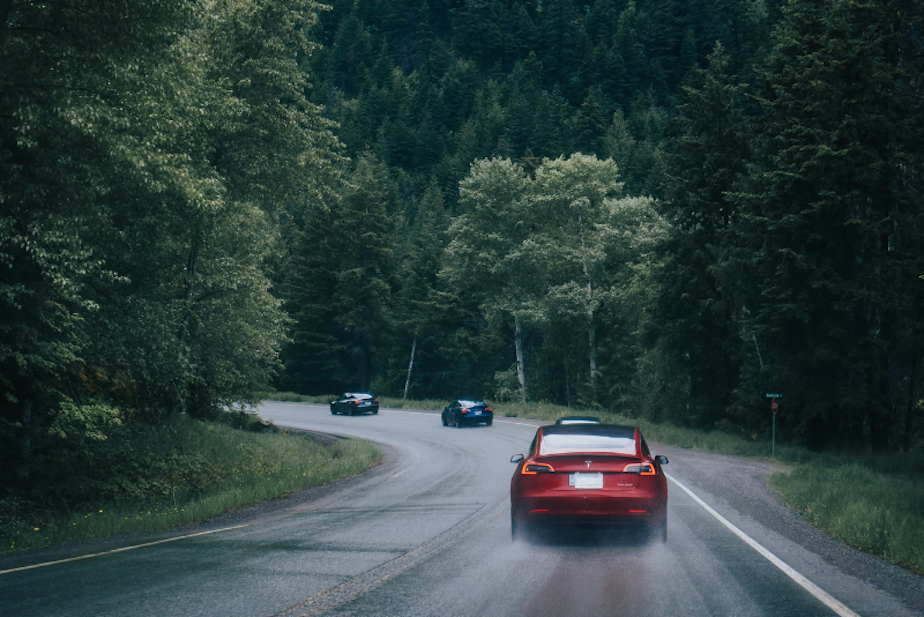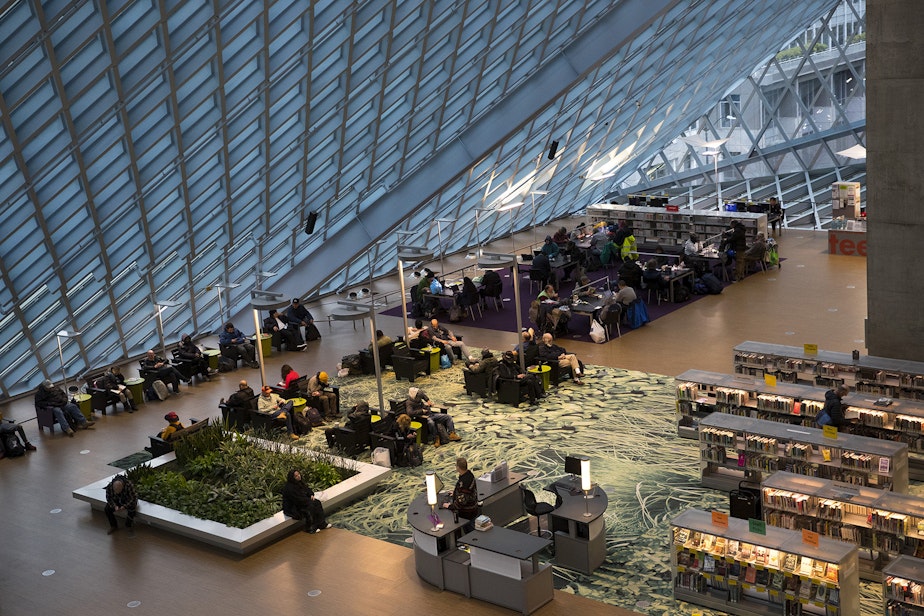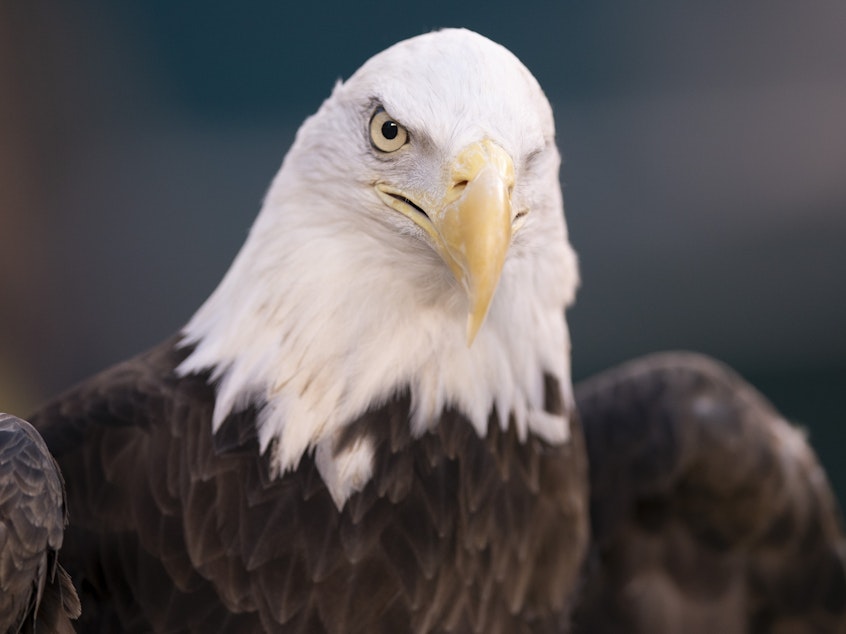More roads, more EVs. Can Washington do it?: Today So Far

Washington wants to build a lot more highways in the coming years. At the same time, it has a goal to have all new cars sold in the state be electric by 2030.
This post originally appeared in KUOW's Today So Far newsletter for April 6, 2022.
Let's hit the road.
And western Washington is slated to get a lot more road to drive along over the next 16 years. Gov. Jay Inslee just signed a budget that includes $4.2 billion to widen highways or create new ones. Route 167, which runs through Puyallup and Tacoma, will get six new miles of road. Route 509 is expected to get up to eight miles of brand-new highway stretching between Puyallup and Sea-Tac. As KUOW's John Ryan points out, the investment in more roads is raising concerns over pollution. Because another part of the issue is the "if you build it, they will come" factor. In other words, if you build more roads, more congestion will come to fill them up. There are some parties who eagerly await the increased highway capacity, however. Specifically the trucking industry that moves our food and goods around the state. Read more here.
RELATED: EV sales surge in Washington. But gas cars still dominate
The pollution factor might not be as much of an issue, however, if Washington state achieves its latest goal — to have all new cars sold in Washington be electric by 2030. Oregon and California have similar plans. But here's the catch: this is not a ban. There will be no penalty if a dealer sells a gasoline car in 2031. So it's more of a "Hey, wouldn't it be great if..." type of policy. But the market might step in and solve this issue anyway. Various major car companies have said they are nixing their gasoline engines over the coming years and going electric. EV sales in Washington state have surged over the past couple years (7.8% of car sales in Washington). Still, EVs only add up to about 1.3% of all cars on Washington roads today. So we've got a lot of work to do. And even more work before we get to a point where we can say: "Roads? Where we're going, we don't need roads."
Read more here.
RELATED: Cascadia bullet train on track for big bucks, but big uncertainty remains
One corner of our society that will be dramatically affected by all this is the delivery industry that has boomed amid the pandemic. But as Carmen Figueroa explains, the gig isn't as easy as we think, which for most of us is just clicking, ordering, and waiting.
Figueroa drives for DoorDash and Grubhub, and recently chronicled her ups and downs as a delivery driver in the Seattle area. She offers a peek into what happens before food shows up at our doorsteps: the break downs; the traffic; and the not-so-perfect systems they work under. Not to mention the drive thru wars that are more akin to the Thunderdome than simply picking up food. Read Figueroa's delivery diary here.
AS SEEN ON KUOW

Two years under a pandemic has highlighted the plethora of ways libraries and librarians serve their communities. Now, Seattle Public Library Chief Librarian Tom Fay is figuring out how to move Seattle's 27 branches into a new era. (Megan Farmer / KUOW)
DID YOU KNOW?
The first electric car was not invented by Elon Musk, nor did it come from GM or any major car company. Credit for our modern concept of an EV goes to a handful of inventors ... in the 1800s. Yep, electric cars have been with us for about as long as the combustion engine.
For example, Gustave Trouvé made what is believed to be the first rechargeable battery-powered EV in France in 1881. Trouvé's electric vehicle was more like a giant tricycle and was tested along the Rue Valois in Paris. Trouvé was not the only inventor to take on electric cars, and other models popped up across Europe and eventually the United States. By the 1890s, there was an electric car market with vehicles using battery power. In London, they were called "hummingbirds" because of the humming sound they made. After 1900, the electric car was the most popular variety in the U.S. There were even some businesses based on exchanging depleted batteries in your car for charged ones, sort of like an electric milkman.
But electric cars had a problem back then. Battery technology was not very advanced, so their range was considerably more limited than what gasoline could do. They were also slower. EVs were most popular in cities where range and speed weren't needed as much. The globe also wasn't as electrified as it is today, and cities were more likely to be plugged in, which meant that only a certain class of folks could afford to charge and drive them (when you think about it, that's still a problem today). So the convenience of gasoline won out in the long run. This is sort of like how vinyl records offered the most superior sound quality, but convenience forced the market down to CDs and now to the garbage quality of an MP3. So in a sense, we have been driving around in MP3s for over 100 years.
Sponsored
ALSO ON OUR MINDS

A wind energy company has pleaded guilty after killing at least 150 eagles
A wind energy company was sentenced to probation and ordered to pay more than $8 million in fines and restitution after at least 150 eagles were killed over the past decade at its wind farms in eight states, federal prosecutors said.

